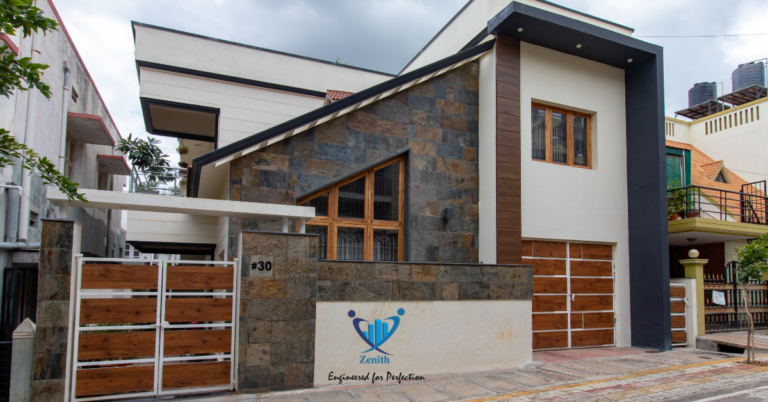Best Practices for Managing Construction Projects
When it comes to managing construction projects, following the best practices is crucial for success. From residential buildings to commercial structures, implementing effective strategies ensures smooth operations and satisfactory outcomes. Let’s discuss the best practices that contribute to efficient construction project management.

Understanding Construction Management
Understanding the basics of construction management is crucial before getting into details. It includes coordinating elements like creating construction plans, setting schedules, allocating resources, managing budgets, and ensuring quality control. Effective construction management guarantees that projects stay within budget, finish on schedule, and meet the client’s expectations, leading to satisfaction with the final outcome.
Managing Construction Projects Effectively
It involves following best practices to ensure smooth execution and successful completion. Here are the key steps and best practices for managing construction projects:
- Clear Project Definition: Clear Project Definition is like creating a roadmap for the project. It involves clearly stating what the project aims to achieve, what needs to be done, and by when. This includes setting goals, outlining tasks and responsibilities, defining what success looks like, and agreeing on timelines with all stakeholders. When everyone understands and agrees on these key points from the start, it reduces confusion, prevents misunderstandings, and sets the project up for success.
- Detailed Planning: Detailed Planning in construction management means creating a thorough blueprint for the project. This involves making a detailed plan that includes all the tasks that need to be done, important milestones to reach, deadlines for each task, what resources are needed (like materials, equipment, and people), and how tasks depend on each other. To do this effectively, project managers use special tools and methods that help them create schedules and manage resources in the best possible way. It’s like creating a step-by-step guide that ensures everything gets done on time and within budget.
- Effective Communication: Effective communication in construction management is about keeping everyone involved in the project informed and connected. This means having clear and open channels of communication with everyone, including clients, contractors, suppliers, and team members. It’s important to regularly update them on how the project is progressing, any challenges that arise, and decisions that are being made. This kind of communication helps to build trust, foster collaboration, and ensure that everyone is working towards the same goals. It’s like making sure everyone is on the same page so that the project can run smoothly and successfully.
- Risk Management: Risk management in construction involves identifying possible problems or challenges that could happen during the project and coming up with ways to deal with them. This includes things like bad weather, delays in getting materials, or unexpected issues with the building site. Project managers regularly check for these risks and keep an eye on them throughout the project, making changes to their plans and actions as needed to avoid problems and keep the project on track. It’s like being prepared for anything that might go wrong so that the project can keep moving forward smoothly.
- Quality Assurance: Quality assurance in construction is all about making sure that the work meets the standards and requirements set for the project. This involves putting in place measures to check and control the quality of the work being done. Project managers conduct regular inspections, tests, and reviews to identify any issues with the quality of materials or workmanship. If any problems are found, they are addressed promptly to maintain the overall quality of the project. It’s like double-checking everything to make sure it’s done right and meets the expectations of the client and stakeholders.
- Budget Control: Monitoring project expenses closely and tracking them against the budget is crucial to prevent going over budget. This involves using cost management techniques like budget forecasts, variance analysis, and change management processes. Budget forecasts help estimate future expenses, while variance analysis compares actual expenses to the budget to identify any discrepancies. Change management processes ensure that any changes to the project scope or requirements are carefully evaluated for their impact on costs. By implementing these cost management strategies, project managers can keep costs under control and avoid cost overruns, ensuring the project stays within budget constraints.
- Resource Management: Resource management in construction involves effectively allocating and managing resources such as materials, equipment, and labor to ensure smooth project execution. This includes optimizing productivity and preventing bottlenecks by coordinating with suppliers, subcontractors, and internal teams. Project managers work to ensure timely delivery of materials and equipment, as well as proper utilization of labor resources. By coordinating and managing resources efficiently, construction projects can operate more effectively, meet deadlines, and avoid delays that could impact the project’s overall success.
- Schedule Adherence: To stay on track with project schedules and timelines, it’s important to closely monitor progress, identify delays early, and take corrective actions as needed. This involves using scheduling tools and techniques to manage tasks, dependencies, and critical paths effectively. Project managers regularly review the progress of tasks against the schedule, identify any delays or potential issues, and take proactive measures to address them. By staying vigilant and using the right tools, projects can maintain their timelines, meet deadlines, and achieve successful outcomes.
- Document Management: Effective document management is essential in construction projects to ensure smooth operations and compliance with regulations. This involves maintaining accurate and up-to-date project documentation, including contracts, drawings, permits, change orders, and reports. Project managers organize these documents systematically, ensuring easy access and reference for all stakeholders throughout the project lifecycle. Proper documentation management helps in tracking project progress, resolving disputes, and maintaining accountability. It also facilitates collaboration and communication among team members and stakeholders, ultimately contributing to the project’s success.
- Continuous Improvement: Continuous improvement is a key aspect of successful construction project management. This involves regularly reviewing project performance, learning from experiences, and gathering feedback to identify areas for enhancement. Project managers implement process improvements, training programs, and best practices based on these insights to enhance future project outcomes and efficiency. By constantly striving to improve processes, workflows, and team capabilities, construction projects can become more effective, productive, and successful over time.
By following these best practices and implementing effective project management strategies, construction projects can be managed successfully, meeting objectives, delivering quality results, and satisfying stakeholders.
Excellence in Construction Project Management
Adhering to best practices for construction project management is key to achieving successful outcomes. By focusing on thorough planning, effective communication, technology integration, risk management, quality control, safety, and continuous improvement, construction projects can be completed efficiently, meeting client expectations and industry standards.
At Zenith Construction, we are committed to excellence in construction project management in Mysore. Our dedication to best practices, attention to detail, and client-centric approach ensure that every project is delivered with precision and quality. Contact us today for top-notch construction services and exceptional project management expertise.
Starting @ 1699/-* Including GST
Get Your Appointment Booked Today.
Best Residential & Commercial contractors in Mysore
Experience unmatched expertise and craftsmanship with Zenith Construction, recognized as the Best Residential & Commercial Contractors in Mysore.



